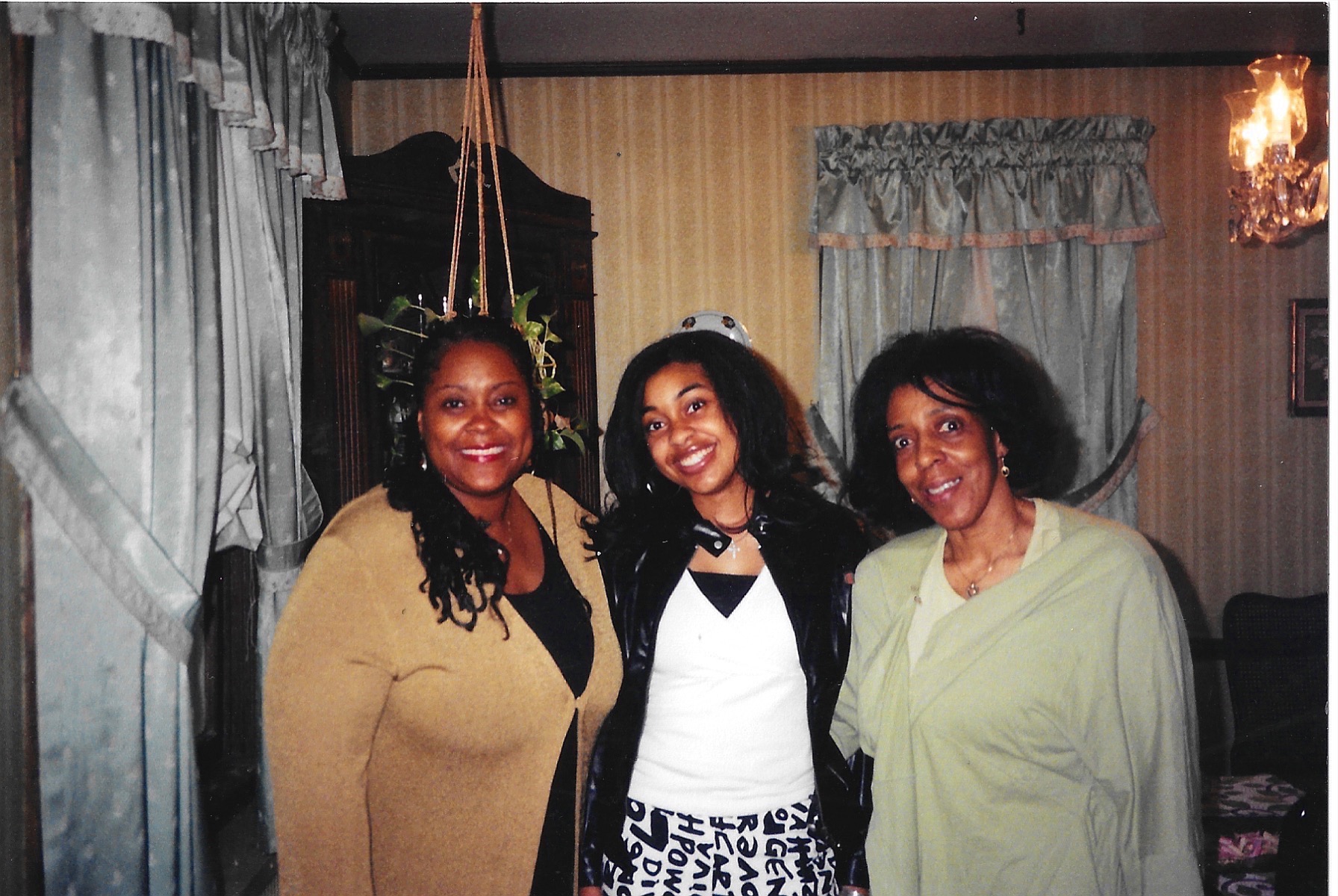If you’re interested in sharing your opinion on any cultural, political or personal topic, create an account here and check out our how-to post to learn more.
____
“I think I’m actually building something!” That’s what I told my mom at the end of last year.
It’s been a year since I left the workplace and started my own business. This year has been invigorating, scary, stressful at times, full of blessings and also affirmation that the table I built may just be here to stay.
Everywhere we turn, we see news stories about how the “Great Resignation” is impacting businesses and the economy — and even some claiming that young employees are missing out on so much by not being in the office. But for Black women, our departure has a deeper meaning, as many of us who were either pushed out or chose to walk out are living on the other side of toxic and oppressive work environments. We are free to define our own success and work together to uplift and support each other.
A few months after I left, a former white colleague asked me, “Some days, don’t you miss going to the office?”
If I’m being honest, I am missing out on some things from walking away. I am missing unfair conversations on who deserves to be promoted. I am missing the meetings that should be emails. I am missing the false sense of performance that is tied to a manager’s opinions rather than being rooted in results or accomplishments. I am missing the hierarchical “right or wrong” workplace structure and the fake collaboration that isn’t meaningful. I am missing being told I can’t take off and the people who expect you to always be on call. I am missing the uncomfortable biased and racist workplace banter and the forced awkward social interaction that comes with it. I am missing the ridiculously long commute to the office.
If I’m really being honest, I am not missing the workplace; it can frankly miss me. I left. I walked. I peaced. I ghosted. I said goodbye to toxicity. A year later, I have no regrets.
These spaces, where we are the least likely to be respected, valued and included, were never intended for us and are built on white supremacy and capitalism. Black women’s lives, since our ancestors were forced to build and birth this country, have been shaped by what others can attain from our labor.
bell hooks said, “Understanding marginality as position and place of resistance is crucial for oppressed, exploited, colonized people … It is there in that space of collective despair that one’s creativity, one’s imagination is at risk, there that one’s mind is fully colonized, there that the freedom one longs for is lost.” So many of us continue to be marginalized in workplaces that were only built to oppress, use and abuse us.
Some of us are afraid to take the risk while others of us simply have no choice due to circumstances beyond our control. But I am now a believer that Black women must cultivate spaces outside of the workplace that are for us, by us. Because there and only there do we experience our truest freedom to thrive — not just survive.
We need space, personally and professionally, to define our own careers and success — and sometimes personal and professional are one and the same. A year later, I am working with clients — many of whom are Black women — who are building legacies and leading the way at new tables. They inspire me every day.
But we can’t do this alone. As we dare to dream up our own visions, we face an uphill battle just getting started. Founding a business is hard, especially for Black women who face insurmountable barriers, like lack of access to capital. But sustaining one is even harder. Systemic barriers are real, raw and often prevent us from leaving. Just .5% of Black women-owned businesses received PPP loans during the height of the pandemic. And though we are among the fastest-growing entrepreneurs in the country, our businesses earn significantly less revenue than those owned by white women.
Over this past year, I’ve had several conversations with Black women visionaries and innovators who just can’t get funded or who are being ignored because investors think one of us is enough to fund as part of their “strategies” to be inclusive. One client told me that her white male counterpart has received millions of dollars for his venture while she is being forced to jump through hoops for thousands — a pattern of injustice that underestimates our potential.
My potential comes from many Black women — among them my Aunt Glyn: my blueprint. I look up to her today and admired her growing up. She was vice president of urban promotions for EMI Records in New York in the ‘90s. She was my first example of a Black woman boss who sat in the driver’s seat of her own destiny and owned it. She is brilliant, stylish and fabulous, and cultivated and discovered many legendary artists, from Arrested Development to Gang Starr, and being an early champion of Wendy Moten (who is now thriving again).

Aunt Glyn was at the top of her game. I remember meeting some of these famous folks and being more awed by her than the celebrity in front of me. She visited me recently and told me how proud she is of me. But what I hope she knows is that I learned invaluable lessons from her existence in my life, simply from her example. She was, indeed, the first for so many things, but imagine what could’ve been if she’d not been the only. She should have had her own label. If it weren’t for systemic racism and structural gender bias, I often wonder what else she and others might’ve accomplished if they had real support and investment.
Like many business owners, I’ve had ups and downs, but for a Black woman to make it to and through year one is no small feat. I made it, but I’m still making it.
If I never walked away, I would never have gained. I gained my authentic self. I gained a real feeling of success and accomplishment. I’ve gained confidence in my talents, a motivation I’ve never felt before, and the ability to put up barriers and say “no” to things that no longer serve me. I’m owning and taking the space and time to daydream without limits, to be creative and be still.
So many Black women who came before me didn’t have the option to sit at their own tables. But they are with me now and always. They, like my Aunt Glyn, were the original blueprint. Now I’m helping myself and hopefully generations of other Black women manifest the designs from where our dreams will unfold.
Some may think Black women leaving the workplace is temporary or trendy. But my story and countless others are proof we are here to stay.
Today I sit at my table relieved, challenged and always looking for the next dream. I’m emancipated and building a legacy.
____
Takirra Winfield Dixon is the founder of Unapologetic Communications, as well as a writer, activist and Baltimore native.
